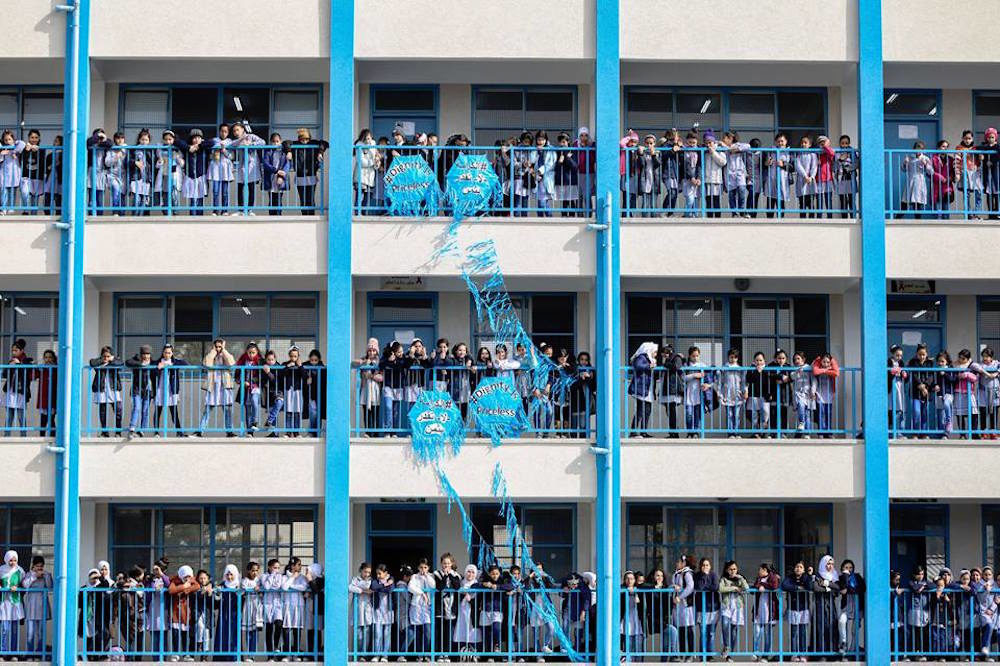The current crisis opens a golden opportunity to fix that aberration, at least in Gaza.
Originally published on The Boston Globe
While the war in Gaza, prompted by Hamas’s heinous attack on Israel on Oct. 7, is still raging, questions are already being raised about the fate of Gaza once the weapons silence. Assuming that Hamas is decimated, or at least seriously weakened, who will rule it then? The weak Palestinian Authority, which barely manages to rule the West Bank? Or some kind of an international body, composed of yet-unknown players? Who will finance the massive reconstruction needed? Would there be an Israeli military presence, as Prime Minister Benjamin Netanyahu has pledged?
With all these questions and speculations, one solid fact stands out clearly: Gaza is at a critical crossroad. It can either be reconstructed through a New Marshall Plan and — once freed of Hamas’s grip — embark upon peaceful coexistence with Israel and move toward prosperity; or it can cling to the Jihadist ideology of Hamas and then remain buried forever in poverty and hopelessness.
At this point, the people of Gaza are not in a position to make a free choice between these two options, because since taking over Gaza in 2007, Hamas has been ruthlessly suppressingany trace of dissent. But let’s assume that after an interim period, when Gaza is reconstructed and some kind of a functioning, Hamas-free government is formed, the majority of Gazans will then see the light and support it. That would be their first step in a long march toward a better future. For this to happen, however, it is imperative to remove from any future scenario for Gaza not only Hamas but also another player that might hamper any chance of progress: the United Nations Relief and Works Agency for Palestine Refugees in the Near East.
UNRWA was founded in 1949 to solve the problem of the Palestinian refugees, some 700,000 at the time,defined as “persons whose normal place of residence was Palestine during the period 1 June 1946 to 15 May 1948, and who lost both home and means of livelihood as a result of the 1948 conflict.” Today, however, not only has UNRWA not solved the problem, but it claims that it is now responsible for more than 5 million Palestinian refugees.
How could something so anomalous happen? Simply by changing the rules. Contrary to the UN’s own definition of a refugee, UNRWA extended the status first to third-generation descendants and then to all descendants of Palestine refugee males, regardless of whether they had been granted citizenship elsewhere. With so many people to “care” for, no wonder UNRWA became one of the largest UN organizations, with a staff of almost 30,000 anda budget of about $1.2 billion.
In 2019, a report about the ethics of UNRWA(“sexual misconduct, nepotism, retaliation, discrimination” etc.) infuriated the Swiss government so much that it suspended its funding of the organization. However, in 2018, Swiss Foreign Minister Ignazio Cassis hit the nail on the head when he said that if once UNRWA was supposed to provide a solution, it has become part of the problem. As long as Palestinians live in refugee camps, he said, they want to return to the homes they had left in 1948. “By supporting the UNRWA, we keep the conflict alive. It’s a perverse logic.”
One wonders why it took people so long to realize that UNRWA was nothing but a colossal blunder, when already in April 1952, Lieutenant General Sir Alexander Galloway, then head of the UNRWA for Jordan, said to visiting American clergy that “it is perfectly clear that the Arab nations do not want to solve the Arab refugee problem. They want to keep it as an open sore, as an affront against the United Nations, and as a weapon against Israel.” Then the blunt British general added: “Arab leaders don’t give a damn whether the refugees live or die.”
However, when asked what he felt the solution to the problem was, he said: “Give each of the Arab nations where the refugees are to be found an agreed-upon sum of money for their care and resettlement and then let them handle it. If … the United Nations had done this immediately after the conflict — explaining to the Arab states ‘We are sorry it happened, but here is a sum of money for you to take care of the refugees’ — the problem might have been solved long ago.”
Unfortunately, nobody heeded Galloway’s advice, and therefore, for decades, UNRWA has been perpetuating the problem of the Palestinians at the expense of UN members, mainly the United States. The current crisis opens a golden opportunity to fix that aberration, at least in Gaza.
Uri Dromi is the founder and president of the Jerusalem Press Club. He was the spokesperson for the Yitzhak Rabin and Shimon Peres governments..









